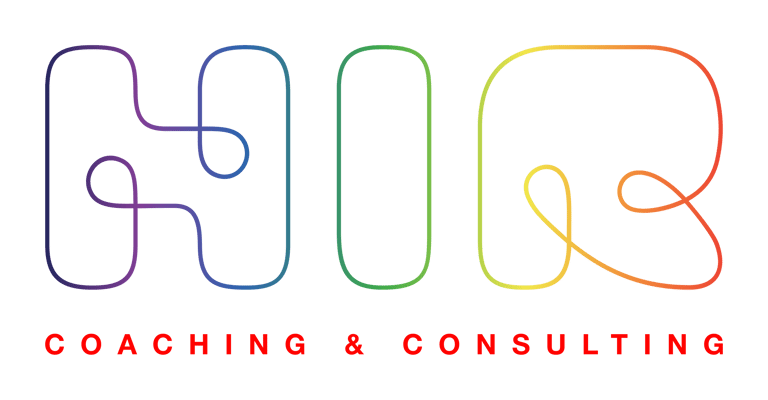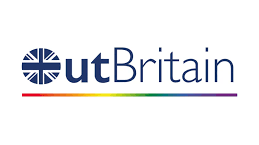Core Coaching Conversations
If any of these conversations sound familiar, you’re not alone — and change is absolutely possible. Strengths Profile gives you the clarity; coaching gives you the tools and accountability; together they help you step into the transformation you’ve been waiting for.
James
9/23/20253 min read


Every coaching relationship starts with a conversation — a brave, honest exploration of where someone is and where they want to be. Over the years, I’ve noticed certain themes surface again and again. These are the core conversations that many people carry quietly until they find a space safe enough to voice them. And they’re often the starting point for the most profound transformations.
The tool I return to again and again in these journeys is Strengths Profile. It maps four areas:
Realised strengths: what you do well and enjoy.
Unrealised strengths: what you’re good at but aren’t using yet — often the biggest source of untapped energy.
Learned behaviours: what you can do but find draining.
Weaknesses: what doesn’t come naturally and costs more than it gives back.
By shining a light on these areas, Strengths Profile helps people see themselves clearly — and it’s in that clarity that transformation begins.
The client stories shared here are hypothetical examples based on real coaching experiences. Names and details have been changed to protect privacy.
1) Relationship Challenges & Patterns
Many people arrive in coaching struggling with relationships: repeating cycles with emotionally unavailable partners, avoiding dating for fear of rejection, or feeling anxious after breakups and long stretches of singlehood.
Strengths in action: Often, unrealised strengths such as Compassion, Emotional Awareness, and Relationship Deepener are sitting dormant. When clients intentionally use these, they start building healthier, reciprocal connections — with others and, first, with themselves.
Example: Sam, 34, had been suppressing his Empathic strength, worried it was “too much.” Leaning into it helped him stop chasing distance and start choosing relationships with genuine emotional reciprocity.
2) Self-Worth, Confidence & Self-Acceptance
Harsh self-criticism, comparison, and difficulty being authentic are common threads. Some clients seek constant external validation and still feel “never enough.”
Strengths in action: Profiles frequently reveal underused strengths like Authenticity, Courage, and Self-Improver. When clients give themselves permission to use these, they shift from self-criticism to self-acceptance, and from chasing approval to cultivating inner confidence.
Example: Laura consistently downplayed her achievements. Her profile showed Courage and Authenticity as unrealised. Using them, she began speaking up in meetings and sharing unfiltered ideas — and felt noticeably lighter and more self-assured.
3) Loneliness & Disconnection
So many people quietly feel “on the outside”: lots of acquaintances, few close friends; surface-level interactions; even feeling emotionally alone inside a relationship — especially after moving cities or drifting from old networks.
Strengths in action: Coaching helps clients activate Connector, Rapport Builder, and Empathic to create deeper, more authentic bonds. The shift is from isolation to belonging.
Example: David, early 40s, had plenty of social contact but no depth. With Connector identified as an unrealised strength, he began initiating richer conversations and building real friendships. Within months, he finally felt “at home.”
4) Purpose, Direction & Fulfilment
Careers can feel stagnant or misaligned with values. Life runs on autopilot. Even big wins feel hollow without a clear “why.”
Strengths in action: Unrealised strengths like Mission, Growth, Legacy, and Strategic Awareness often hold the key. Bringing them into play helps clients rediscover meaning and make values-aligned decisions.
Example: Amira had a high-paying role but no spark. With Mission and Growth underused, she pivoted toward social-impact work. The result: renewed energy, a clearer future, and work that finally felt worth her effort.
5) Mental Health Strain: Burnout, Anxiety & Depression
Burnout from work or caregiving, social anxiety, or depressive periods can make routines, hobbies, and joy feel out of reach.
Strengths in action: We build resilience by activating Optimism, Persistence, and Organiser, and by noticing where overuse of certain strengths (e.g., Service, Drive) tips into depletion. We also reduce reliance on draining learned behaviours and rebuild sustainable structure. The shift is from exhaustion to resilience.
Example: Marcus kept saying yes to everything — an overuse of Service and Drive that left him depleted. His profile highlighted unrealised Optimism and Self-Belief. By activating those and using Organiser to set clearer boundaries, his anxiety eased and his energy returned.
From Conversation to Transformation
These themes don’t exist in isolation. Relationship patterns tie to self-worth. Loneliness erodes confidence. Burnout blurs purpose. Pull one thread and the whole picture begins to shift.
While each journey is unique, the destination often looks similar: clarity, confidence, and possibility. Coaching isn’t about fixing what’s broken; it’s about unlocking what’s already within you — the strengths, resilience, and potential you may have forgotten you have.
If any of these conversations sound familiar, you’re not alone — and change is absolutely possible. Strengths Profile gives you the clarity; coaching gives you the tools and accountability; together they help you step into the transformation you’ve been waiting for.
HiR Coaching & Consulting is a business name registered in New South Wales, Australia. ABN 53693942059
100% Money Back Guarantee
Foundations Program – Our Promise
The Foundations Program comes with a clear promise.
If, after completing Foundations, you:
do not get something positive from the experience and
do not make at least one agreed change identified in your initial 30-minute onboarding call
then you can choose one of two options:
A full refund, minus the cost of the Strengths Profile assessment, or
Continue working with me at no additional cost until you achieve a meaningful breakthrough.
This promise exists because Foundations is designed to create clarity, momentum, and real change — not just conversation.
Coaching Memberships – Flexibility, Not Guarantees
On-going coaching memberships do not come with a performance guarantee.
Instead, they are designed to be low-risk and flexible:
You can cancel at any time
There are no penalties or lock-ins
You stay because the coaching is useful — not because you’re tied to a contract.
12-Month Upfront Memberships – Pro-Rata Refunds
If you choose to pay for 12 months upfront, you’re entitled to request a pro-rata refund at any time if you decide the experience is not positive for you.
In this case:
The number of coaching sessions already attended will be deducted from the original amount paid
The remaining balance will be refunded accordingly
Important Notes
Coaching is not a done-for-you service. Results depend on your willingness to engage, reflect, and take action.
If at any point it becomes clear that the agreed effort and participation are not there, I’ll raise this directly and honestly.
If alignment can’t be restored, a refund of the unused portion of the coaching may be issued at the standard coaching rate.
Exclusions
Refunds and guarantees do not apply to the Resume & Career Upgrade Package or the Seven Days of Strengths self-guided program, due to the nature of the work and time already invested.




Terms & Conditions
Payment is immediate at the time of booking.
Prices quoted on the website are in AUD, and HiR is registered in Australia. Payments and invoices are available in AUD, USD, CND, GBP, or EURO.
All sessions are online, booked via Calendly and conducted using Google Meet unless expressly agreed otherwise. In-real-life sessions may incur additional fees for travel and incidental expenses.
Sessions can be rescheduled using the calendly booking system as required.
All Calendly sessions are booked with a 30-minute buffer so that James can extend the session without any challenges or additional fees should we continue to get the work done. After your kick-off session, the agreement with your coach on the specific results you want to achieve from your personalised program will be documented.








